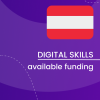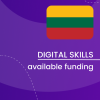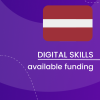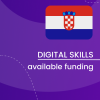Available funding in the Netherlands
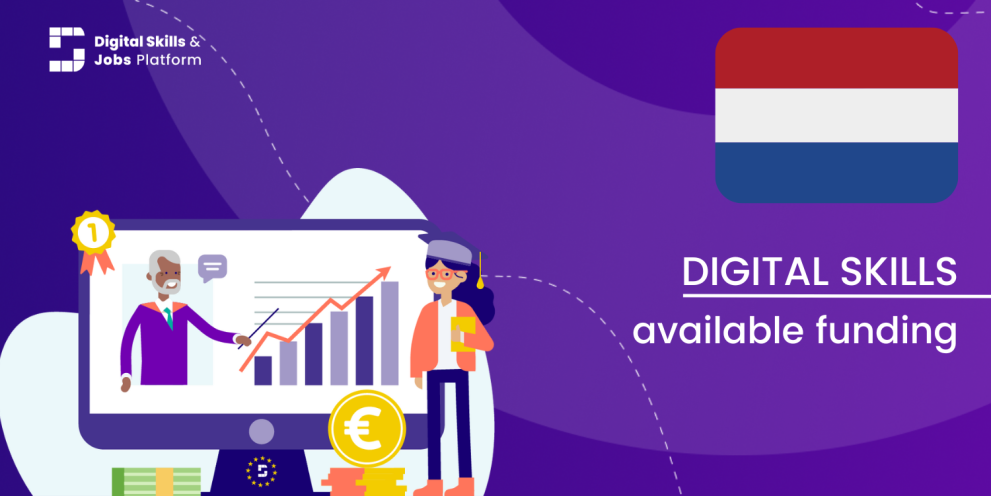
Background information
Funding opportunities for upskilling and reskilling to support the digital competences of individuals and organizations are available in form of loans, grants and financial instruments. For the period 2021 – 2026 most of the activities in digital transformation are financed through Recovery and Resilience facility but also as activities in Horizon, Erasmus+, ESIF and EEA grant schemes. You may find more on the page of National Growth Fund, Smart Industry, NL AI Coalition, Recovery and Resilience website
Recovery and resilience facility
The Netherlands can claim 4.7 billion euros in resources from the European Recovery and Resilience Facility. Government-wide plan consist of 49 measures, of which 21 are reforms and 28 are investments contributing to green transition and digital transformation. Netherlands' plan was approved in October 2022 expecting first payment request, worth 1.4 billion euros, by the third quarter of 2023.
The recovery and resilience plan of the Netherlands supports the digital transition through investments in advanced technologies such as quantum technology (263 million euros) and artificial intelligence (60 million euros). Investing €209 million in the information and communications technology (ICT) infrastructure and sectoral knowledge infrastructure of the education system supports the digitalisation of education. The promotion of smart mobility solutions, the implementation of digital infrastructure in the train traffic management system, and the development of digital roadside stations are supported with €149 million to promote sustainable mobility. In addition, the proposal includes funding for the digitalization of the criminal justice chain (€75 million) and upgrades to the Ministry of Defense's IT systems (€94 million). In addition, the plan will contribute to the development of digital skills at various levels of the Dutch education system as well as digital inclusion in education (€329 million) and health (€22 million) via e-health applications.
National Funding
Through National Growth Fund the Netherlands intends to invest 20 billion euros over the next few years in future growth priority areas such as innovation, research, and knowledge development. The government approved the first round of investments by the National Growth Fund in April 2021, allocating up to 960 million EUR to three digital transition-focused projects in quantum computing, artificial intelligence, and the use of data in the medical sector. In the April 2022 round, the Growth Fund Committee recommended hundreds of millions of euros in additional funding for several digitally oriented initiatives. Investments from the National Growth Fund are assisting further developments in innovative research, the use of digital technologies, and the level of digital skills throughout the economy as a whole.
This National Growth Fund also supports the Dutch AIned programme for AI research with up to EUR 276 million to fund long-term and cross-sectoral Artificial Intelligence research. The total budget for this program is EUR 2.1 billion for the period 2021-2027.
The Netherlands increased their SME support measures in 2021. A network of 'SME workplaces', which brings together local small enterprises and technology students, expanded to twenty workplaces as a result of a specific subsidy programme. Planned new measures to increase the adoption of digital technologies are presently being tested as pilot programmes, with the goal of expanding this network to more than 97 000 SMEs over the next three years.
In 2023 Ministry of Education, Culture and Science is providing € 27 million for projects that strengthen the connection between vocational education and the labour market. Partnerships of schools, employers and regional authorities can apply two times a year. In the first 2023 round ten projects were awarded.
National Education Lab allows stakeholders work on AI-innovations to promote the safe and responsible use of AI technology within Dutch primary and secondary education. The project draws together students, schools, and entrepreneurs. It also gives participating institutions in the Netherlands access to a highly developed public AI research infrastructure. Interested partners are developing artificial intelligence technology to enhance the quality of Dutch education and integrate the use of technology into education curricula, while adhering to ethical and responsible usage principles in which the teacher remains the central figure. The initial investment of 80 million euros will be utilised over the following decade.
The Ministry of Education, Culture and Science is leading project Digitaal Onderwijs Goed Geregeld (Digital Education Well Arranged) creating an ecosystem in which schools and suppliers exchange data in a safe and simple manner. This lays the foundation for flexible and future-proof education. Because the ecosystem has a low threshold – everyone can join – it also gives an impulse to innovations. That ecosystem ensures simple, safe and reliable access to digital educational resources and regulates the use of these resources for primary, secondary, special and secondary vocational education.
STAP budget for training and development is available for workers or job-seekers up to € 1,000 per year for training and development. The subsidy is called STAP, which stands for STimulering Arbeidsmarkt Position.
Different funding options are also available on the Digital Skills and Jobs platform, you may find a listing for Netherlands on this link.


